Assessing the Giro d'Italia wildcard candidates
Decision on final three places due later this week
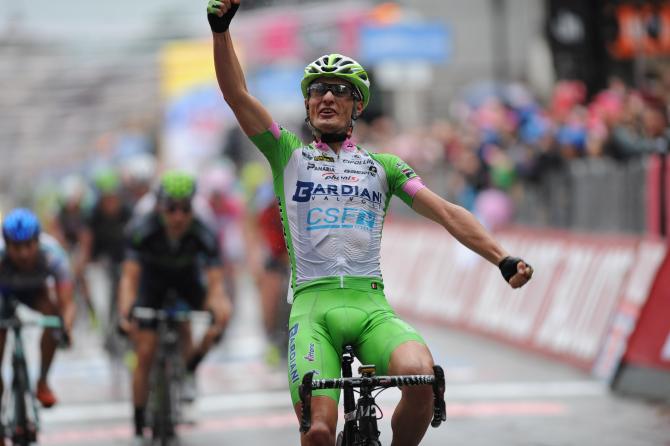
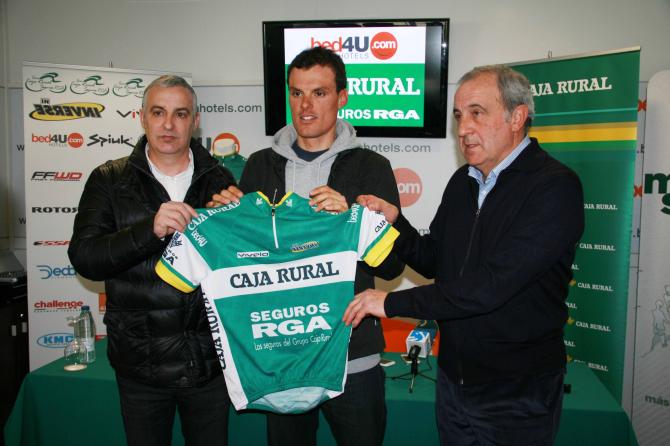
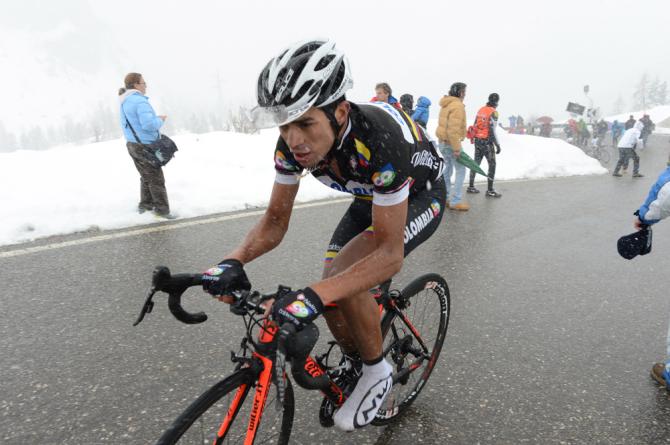
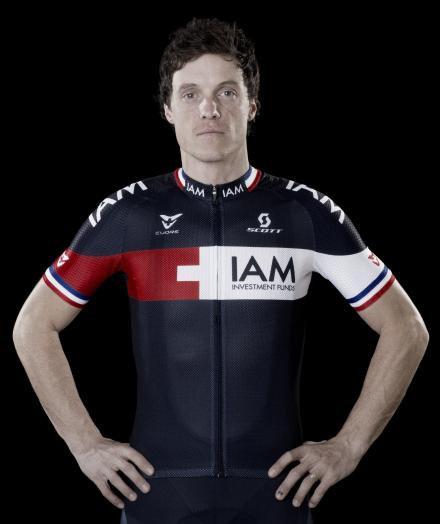
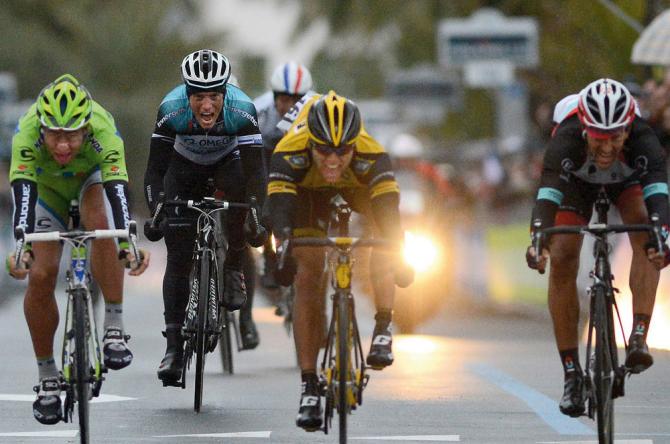
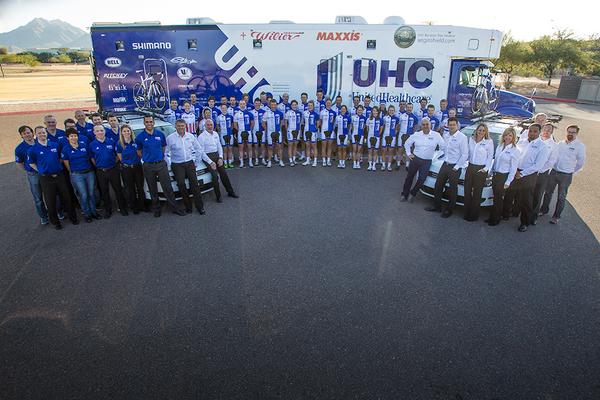
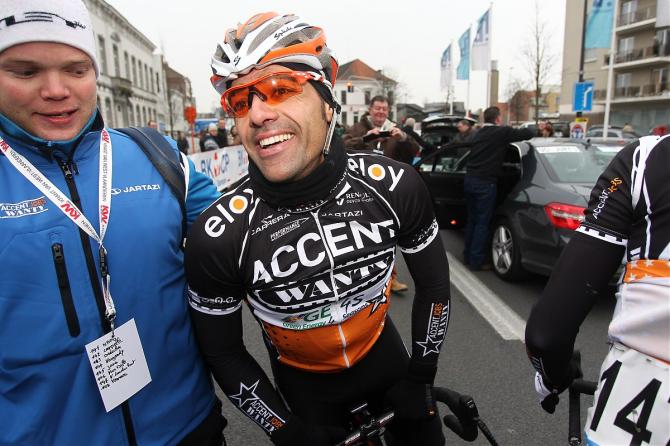

Michele Acquarone may no longer be at the helm, but one of the legacies of his tenure at the head of the Giro d’Italia organisation remains in place, with RCS Sport set to continue its recent practice of announcing the wildcard invitations to the corsa rosa and its other events before the beginning of the season.
RCS unveiled the revised list of candidates for the final three Giro berths via social media last Friday, and Cyclingnews understands that it will announce the successful teams later this week, on either Thursday or Friday.
The 18 WorldTour teams are automatically invited to the 2014 Giro, along with Androni-Venezuela, who once again claimed the place set aside for the winner of the season-long Coppa Italia team classification. The eight applicants for the remaining places include the three invitees from last season, Bardiani-CSF Inox, YellowFluo-Neri Sottoli and Colombia, as well as MTN-Qhubeka, IAM Cycling, Caja Rural-RGA Seguros, UnitedHealthcare and Wanty Group-Gobert.
The process
In years gone by, there were oftentimes Byzantine machinations driving the whys and wherefores of wildcard invitations to major races – witness the furore that followed Mercatone Uno and Saeco’s exclusion from the 2001 Tour de France, for instance – but under Acquarone’s stewardship, RCS Sport sought to introduce an element of transparency to a hitherto obscure process.
As was the case in 2012 and 2013, teams wishing to participate in this year’s Giro d’Italia and RCS Sport’s other primary races – Milan-San Remo, Strade Bianche, Roma Maxima, Tirreno-Adriatico and the Tour of Lombardy – were asked to submit a dossier outlining their candidacy by December 15 last.
The upheaval at RCS Sport this winter means that the selection process is unlikely to be quite as clear-cut as it was in the past two years, however, when Acquarone included RCS Sport CEO Giacomo Catano, technical manager Mauro Vegni, marketing manager Marco Gobbi Pansana and Pier Bergonzi of Gazzetta dello Sport on a wildcard commission where each member had an equal vote.
Get The Leadout Newsletter
The latest race content, interviews, features, reviews and expert buying guides, direct to your inbox!
Acquarone and Catano were among those fired by RCS Sport late last year following an investigation into the alleged misappropriation of €10 million from the company’s funds, and it is unclear what role, if any, RCS Sport’s new general manager, Paolo Bellino will have in the process, given that he only started in his role on Monday. In any case, Cyclingnews understands that the decision will again be made collectively in 2014, albeit probably by consensus rather than via the formal voting system of the past two seasons.
On those occasions, RCS Sport made no secret of the fact that its wildcards were not assigned on sporting merit alone, and that trend seems likely to continue in 2014. A candidate team’s “sporting and ethical quality” is a factor, then, but not the only one, with its marketing efforts and – perhaps crucially, given the Giro’s bid for increased international coverage – predicted media impact given just as much emphasis.
With just two Italian-registered teams (Androni and Lampre-Merida) in the Giro peloton as it stands, as well as the Italian-managed Cannondale, one imagines that at least one of the wildcards will be assigned to an Italian candidate. Even in its current guise, however, the wildcard process always has the capacity to surprise, most recently when NetApp secured an invitation to the 2012 Giro.
In strict alphabetical order, therefore, Cyclingnews assesses the pros and cons of the eight candidates vying for the three wildcards and the right to line up for the start of the 2014 Giro d’Italia in Belfast on May 9.
Bardiani-CSF Inox
For: Always an aggressive presence at the Giro, Bardiani carried off stage victory through Enrico Battaglin and the mountains prize with Stefano Pirazzi last year. The presence of young talent Francesco Manuel Bongiorno helps their chances, as does the fact that the relative dearth of Italian teams already guaranteed a place. In order to ensure a certain level of home representation, RCS Sport will surely invite at least one more Italian team, and Bardiani seem best placed.
Against: The team no longer has the patronage of the influential Ernesto Colnago (Cipollini became bike supplier at the beginning of last season) and the team has been steadily losing its big names in recent seasons, with Sacha Modolo this winter’s high-profile departure.
Caja Rural-RGA Seguros
For: The signing of Luis Leon Sanchez adds proven grand tour quality to Caja Rural’s ranks, although that is tempered by the lingering questions over his involvement in Operacion Puerto, which were enough for Belkin to quietly dispense with his services in 2013. Caja Rural also boasts former Giro podium finisher David Arroyo, Amets Txurruka and Tour de l’Avenir winner Ruben Fernandez in its ranks, and added Angel Madrazo and Italian Davide Viganò during the off-season.
Against: As stated, there is a reason why Luis Leon Sanchez was allowed to drop out of the WorldTour, and that might count against Caja Rural’s chances here. Arroyo has never since scaled the heights of the 2010 Giro.
Colombia
For: A rising tide lifts all boats, and Rigoberto Uran’s success at the Giro last year, not to mention the presence of Uran and – perhaps – Nairo Quintana in 2014, means that there is likely to be increased Colombian media coverage of the race this time around, which will help Team Colombia’s chances of selection no end. The team was an aggressive presence in 2013, with Fabio Duarte’s fine second place in the snow of Tre Cime di Lavaredo the highlight. Leonardo Duque had a quiet Giro last year but rediscovered his fast finish in the second half of the season.
Against: Duarte’s penultimate weekend cameo apart, Colombia’s climbers did not have quite the impact in the mountains they would have liked last year. Claudio Corti’s team has also lost the promising Darwin Atapuma, 18th overall at the 2013 Giro, to BMC.
IAM Cycling
For: Now in its second year of existence, IAM Cycling has perhaps the most experienced roster of the eight wildcard applicants, with former maglia rosa Thomas Löfkvist, and former stage winners Jerome Pineau and Johan Tschopp in its ranks. New arrivals Sylvain Chavanel and Mathias Frank are significant additions to the team, while former Giro chief Acquarone made no secret of his admiration for the team’s marketing strategy.
Against: IAM Cycling’s avowed priority is securing a wildcard invitation to the Tour de France, and the acquisition of Chavanel – not to mention the relative paucity of the other candidates – should see them over the line this year. If that is the case, their Giro team would be significantly weakened, and regardless, one wonders whether Chavanel and Heinrich Haussler would even ride the corsa rosa given their focus on the classics. The presence of just one Italian (Matteo Pelucchi) does not help their cause either.
MTN-Qhubeka
For: MTN sensibly declined to apply for a Giro invitation in its first year at Pro Continental level last year, but shone elsewhere on RCS Sport’s watch. Gerald Ciolek’s Milan-San Remo victory could be enough in itself to secure a wildcard slot, but the addition of Linus Gerdemann and Daniel Teklehaimanot for 2014, not to mention the team’s Italian links and RCS Sport’s desire for globalisation, improves MTN's chances still further.
Against: MTN has a number of talented riders on its books, but will that roster be spread too thinly if the Giro is added to an already full spring programme? That said, MTN’s 25-man squad still dwarfs that of a number of its wildcard rivals.
UnitedHealthcare Pro Cycling
For: In terms of global media impact, there is an obvious attraction for RCS Sport in inviting an additional American team to the Giro, and though lacking a general classification contender, the likes of Marc de Maar and Martijn Maaskant are capable of animating the race outside of the mountains. The presence of Irishman and world scratch champion Martyn Irvine does the team's chances no harm either, considering the race begins in Belfast, while the switch to Wilier frames in 2014 and the addition of Roberto Damiani as directeur sportif also help their cause.
Against: UnitedHealthcare’s roster, far from the strongest of the contenders, will already be stretched by its likely invitation to the Tour of California. The loss of last season’s star performer Philip Deignan, who has signed for Team Sky, has significantly damaged their cause.
Wanty Group-Gobert
For: A surprising applicant for a Giro wildcard, the Belgian Pro Continental outfit has been strengthened by an influx of riders from the defunct Vacansoleil-DCM team, including Italian Mirko Selvaggi. They will hope that the presence of 2009 Giro white jersey winner Kevin Seeldraeyers and former stage winner Danilo Napolitano is enough to sway the decision-makers in Milan.
Against: Seeldraeyers was quiet during his two-year spell at Astana (a brace of Tour of Austria stages were the highlight) and it is now seven years since Napolitano sprinted his lone Giro win. The team lacks both the star power and commercial appeal of the other contenders.
YellowFluo-Neri Sottoli
For: In purely racing terms, Luca Scinto’s squad has always given value for money on its visits to the Giro, be it through attacking riding or stage victories. A YellowFluo invitation would bolster the Italian presence in the Giro gruppo, too, while failure to land a wildcard would seriously harm the team’s chances of survival into 2015.
Against: Danilo Di Luca and Mauro Santambrogio. Two positive tests for EPO at the 2013 Giro mean that RCS Sport will be very reluctant indeed to take a chance on the men in fluorescent yellow. The team’s insistence that the riders acted alone and its decision to return its Tour of Lombardy invitation by way of apology have not repaired the damage. Meanwhile, on a sporting level, the loss of Oscar Gatto to Cannondale means that this is probably the weakest iteration of Scinto’s team since its debut season in 2009.

Barry Ryan was Head of Features at Cyclingnews. He has covered professional cycling since 2010, reporting from the Tour de France, Giro d’Italia and events from Argentina to Japan. His writing has appeared in The Independent, Procycling and Cycling Plus. He is the author of The Ascent: Sean Kelly, Stephen Roche and the Rise of Irish Cycling’s Golden Generation, published by Gill Books.